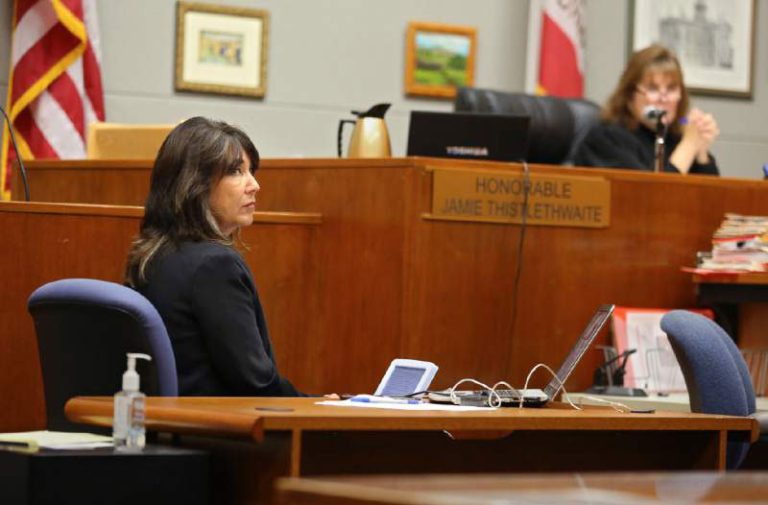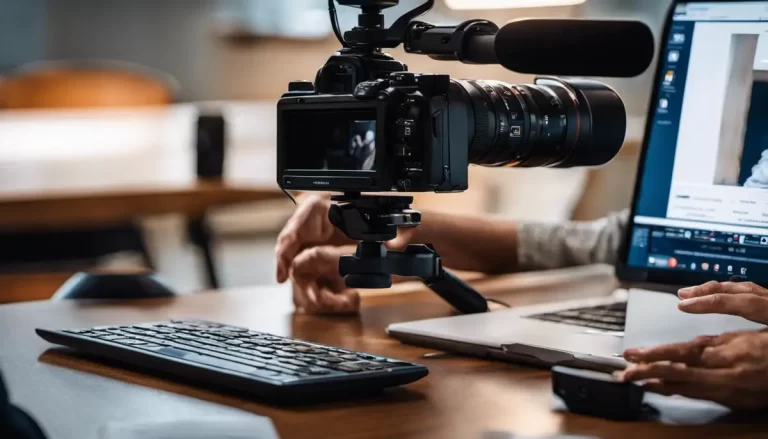From buying groceries to communicating with friends and family, the internet has changed our lives. The Internet has many benefits, but it also raises legal concerns. Cyberbullying and intellectual property conflicts are difficult issues that demand ability and dedication.
Court reporters are pioneers in online evidence collection and presentation due to their meticulousness and attention. This digital world presents distinct obstacles. Explore some of these barriers.
Technology has changed how information is shared and given court reporters powerful tools for processing digital evidence. We’ll examine these cutting-edge technologies that help court reporters traverse massive data sets.
Dealing with sensitive or contentious online content requires ethics as well as technology. Court reporters must reconcile accuracy with privacy and social issues, a hard balance.
Online evidence can be significant in court proceedings, as shown by real case studies where it helped achieve justice. These stories highlight significant lessons from virtual courtroom conflicts.
Veteran court reporters will offer advice on internet legal concerns based on their years of experience. Everyone seeking knowledge in today’s ever-changing technical scene can find something here, whether you’re a professional or just inquisitive about this fascinating topic.
The role of court reporters in documenting and preserving online content
In the digital age, court reporters document and preserve internet content. Court reporters are essential in gathering and preserving digital evidence as legal concerns arise online.
We spend a lot of time online, from social media to email. Court reporters carefully record these internet encounters for future legal procedures. They must collect text, photographs, videos, and other material from numerous platforms.
This task has its challenges. Court reporters struggle to get evidence from ever-changing websites and social media platforms that allow editing and deletion. Navigating sophisticated privacy settings or encrypted messages while preserving proof needs skill.
Court reporters are using digital evidence-specific technologies and methods to address these issues. They take screenshots or record online pages before they disappear or are altered using specialized software. These tools timestamp evidence for accuracy.
When handling sensitive or contentious internet content, ethics are also important. Court reporters must follow confidentiality rules and be wary of prejudices that could impair their neutrality during documenting.
Real-life case studies show how online evidence can aid court procedures. Through their thorough documenting skills, court reporters have helped bring justice to cyberbullying instances and email fraud cases.
Aspiring court reporters must master digital platforms and traditional reporting methods. Online content must be meticulously documented because even little errors might affect legal outcomes.
Challenges faced by court reporters in collecting and presenting evidence from online sources
In the digital age, the internet is crucial to our daily lives, including legal actions. Court reporters must collect and present evidence from online sources as more information is published. However, this task is difficult.
Too much internet stuff can be overwhelming. Court reporters must analyze massive amounts of data from websites, social media, and forums to locate pertinent evidence. Attention to detail and significant investigation are needed.

The changing nature of online content is another issue. Court reporters must precisely capture and preserve evidence before it disappears forever since information can be changed or erased with a few clicks. Court reporters must quickly acquire authentic evidence due to time limits.
Online source credibility is another challenge for court reporters. The breadth of cyberspace breeds misinformation and fake news. Court reporters must be skilled at distinguishing credible sources from unreliable ones.
Privacy considerations when dealing with sensitive or contentious online content during court processes are last but not least. To preserve rights and document accurate records, court reporters must balance ethics.
Court reporters must be flexible and master new technology to overcome these problems. Keep up with cutting-edge methods for collecting digital evidence like web archiving software or metadata analysis to present indisputable proof in legal situations involving online material.
Advancements in technology and tools used by court reporters for handling digital evidence
Technology and tools have transformed court reporting, especially digital evidence processing. No more sorting through piles of paperwork or transcribing audio. Court reporters can now use many creative tools to work more efficiently and accurately.
Computer-aided transcribing (CAT) software helps court reporters capture, edit, and organize transcripts digitally. With this software, they may swiftly scan a transcript for keywords or phrases, saving time during research.
Court reporters may now write accurate records faster thanks to real-time reporting technology. Court reporters can rapidly transcribe shorthand into readable text on a computer screen using stenography devices and software. Share this real-time stream with attorneys and other case parties.
Cloud storage has also made it easier for court reporters to securely store and access enormous volumes of digital evidence. Everything is saved electronically in one place to avoid losing or damaging physical records.
Ethical considerations for court reporters when dealing with sensitive or controversial online content
Court reporters document and preserve evidence in the fast-paced world of online content. However, delicate, or contentious material requires ethical concerns. Online content is unclear, so court reporters must be careful.
Ethical considerations include impartiality. Court reporters must report events objectively without bias or judgment. Contentious situations that evoke strong emotions can make this difficult.
Privacy is another moral issue. Online content sometimes includes confidential personal information or discussions. Privacy rights require court reporters to be selective when documenting and handling sensitive facts.

Handling sensitive or controversial online content requires transparency. Court reporters should explicitly identify the source of digital evidence so others can verify its validity and dependability.
Court reporters must also evaluate the risks of disclosing sensitive or controversial information. They must balance public interest and individual rights to avoid injury or victimization.
Court reporters must follow legal and professional norms when handling sensitive or contentious web content.
Case studies featuring successful use of online evidence in legal proceedings
Technology has transformed court reporting, as shown by the successful use of online evidence in legal processes. These examples show how court reporters have used technology to improve their cases and the justice system.
In a high-profile defamation dispute, online evidence was crucial. The public figure plaintiff used social media and web articles to prove maliciously false claims. The court reporter helped the plaintiff win a large judgment by carefully collecting and presenting this digital evidence.
These case studies demonstrate how technology has transformed legal proceedings by helping court reporters uncover the facts faster. As courts increasingly use online evidence to establish facts and resolve disputes, practitioners in this field must stay current with advances while following ethical rules.
These successes show how internet evidence can benefit court reporters, but they also highlight some of their challenges. Digital evidence can be edited or erased without leaving traces, thus authenticity is crucial when presenting it to a judge or jury.











